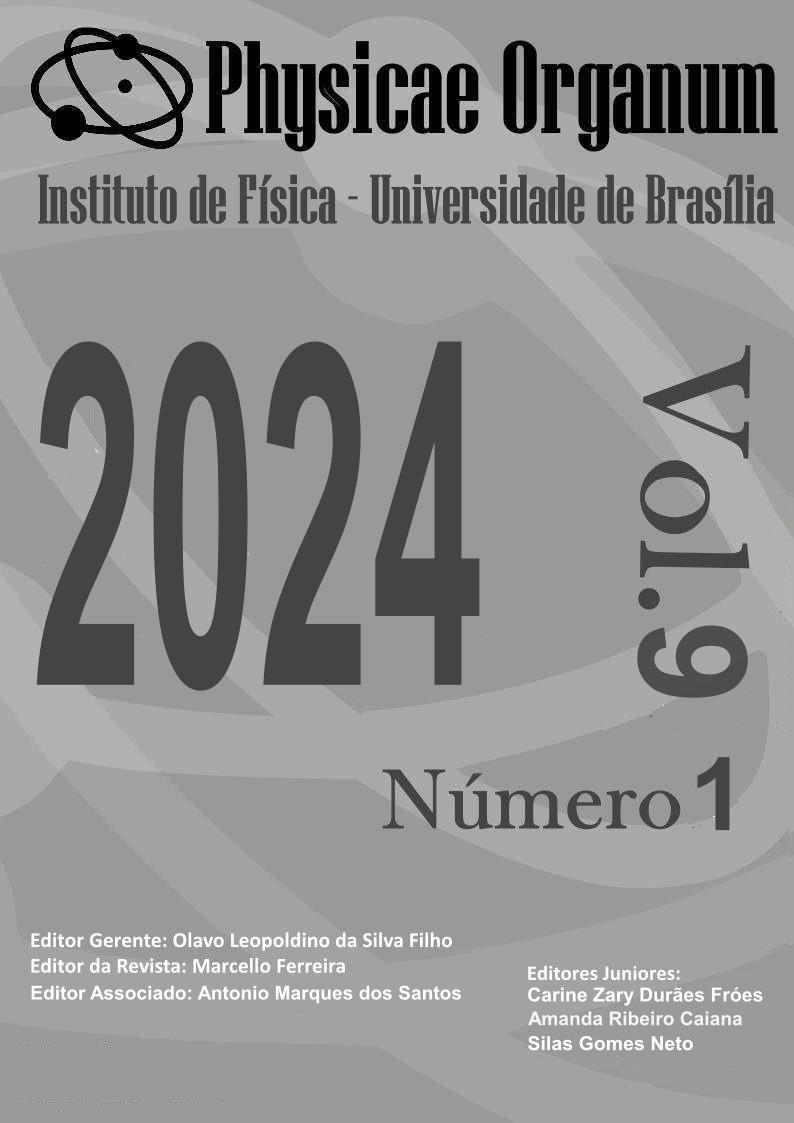Chaotic scattering across potential classic attractions
DOI:
https://doi.org/10.26512/2446-564X2024e48452Keywords:
Scattering, Chaos, Potential, Basin ScapeAbstract
Chaotic scattering occurs in many systems, and the present chaos is transient. Chaos only occurs in a restricted region, which we call the scattering region. The aim is to study the different configurations and the implications of their being chaotic. Fractal structures are present, generating hypersensitivity to initial conditions. We study the classical interaction of attractive potentials with scattered light particles. In the first part, we studied the scattering of a free particle in a potential with a Gaussian profile. Next, we studied the scattering by a Newtonian potential.
References
LYNCH, S. Dynamical Systems with Applications using Python. [S.l.]: Birkhäuser, Cham, Springer International Publishing AG, part of Springer Nature, 2018. 4, 8
MONTEIRO, L. H. A. Sistemas Dinâmicos, 2nd edition. [S.l.]: Editora Livraria da Física, 2006. 7
TAYLOR, J. R. Mecânica Clássica. [S.l.]: Bookman, 2013. 3
TÉL, T.; GRUIZ, M. Chaotic Dynamics, An Introduction Based on Classical Mechanics. [S.l.]: CAMBRIDGE UNIVERSITY PRESS, 2006. 2, 7
Downloads
Published
Issue
Section
License
Copyright (c) 2024 Physicae Organum

This work is licensed under a Creative Commons Attribution-NonCommercial-ShareAlike 4.0 International License.
Autores que publicam nesta revista concordam com os seguintes termos:
- Autores mantém os direitos autorais e concedem à revista o direito de primeira publicação, sendo o trabalho simultaneamente licenciado sob a Creative Commons Attribution License o que permite o compartilhamento do trabalho com reconhecimento da autoria do trabalho e publicação inicial nesta revista.
- Autores têm autorização para assumir contratos adicionais separadamente, para distribuição não-exclusiva da versão do trabalho publicada nesta revista (ex.: publicar em repositório institucional ou como capítulo de livro), com reconhecimento de autoria e publicação inicial nesta revista.
- Autores têm permissão e são estimulados a publicar e distribuir seu trabalho online (ex.: em repositórios institucionais ou na sua página pessoal) a qualquer ponto antes ou durante o processo editorial, já que isso pode gerar alterações produtivas, bem como aumentar o impacto e a citação do trabalho publicado (Veja O Efeito do Acesso Livre).




